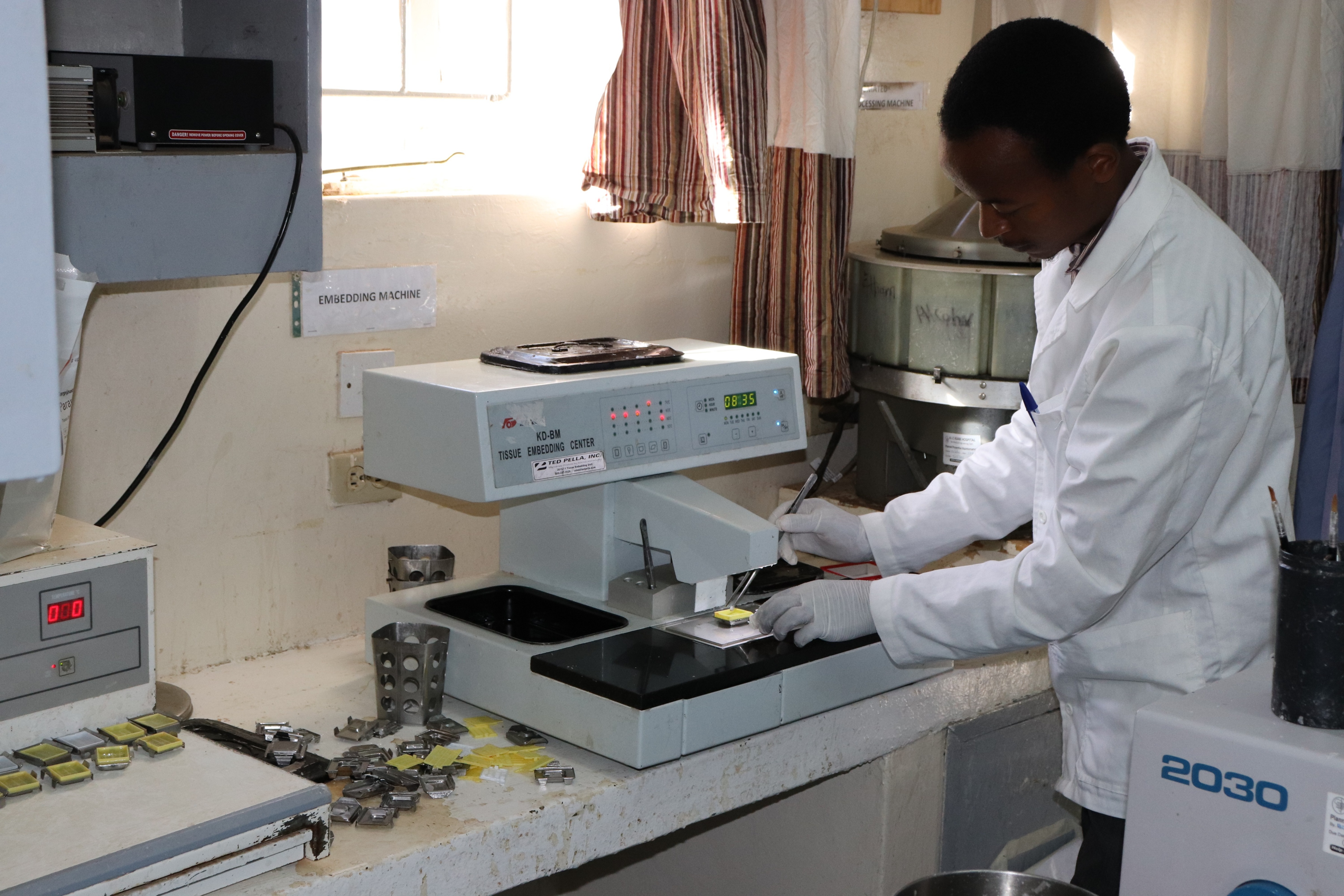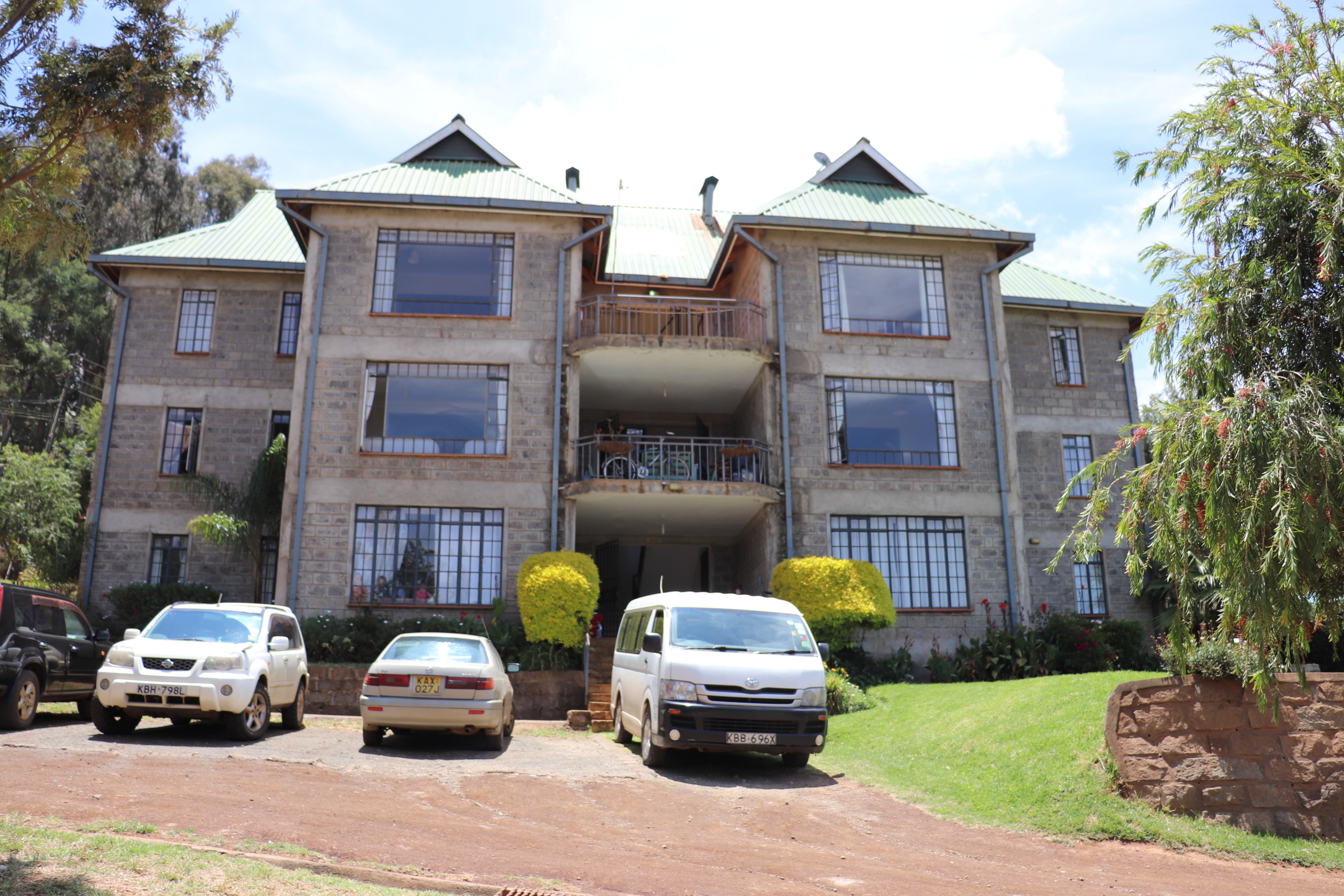

-
Logistics
Eligibility:
Senior residents (third or fourth year in APCP4 program; or 2nd or 3rd years in AP3 or CP3 p) and clinical fellows in good academic standing demonstrating a keen interest in global health and in gaining understanding of working in low resource settings.
Elective Period:
One four week block of international clinical experience which may be paired with one 4 week block of VUMC-based research elective. The timing of the clinical experience depends upon need of the site and availability of supervising faculty. Kijabe Hospital outside Nairobi Kenya is currently the site where we have established the rotation approval and appropriate documentation in place from the Vanderbilt GME office.
Supervision:
The resident will typically be accompanied by a Vanderbilt Faculty pathologist for the entire 4 week period (or part thereof depending on specific approved GME-acceptable arrangements). Supplementary supervision arrangements may include other non-pathology Vanderbilt faculty on site such as surgery or anesthesia faculty as needed.
GME requirements:
Residents must comply with all requirements for global health rotations as specified by the Vanderbilt GME office. Timelines and other resources can be found here. The process should start at lest 6 months prior to departure for the elective.
Funding:
Participants are responsible for expenses associated with travel and elective stay. Residents and fellows may possibly be eligible for a $500 allocation from the department to support the elective experience. Other sources of funding may include, but are not limited to: Organizations that have previously provided support include: Sumaritan’s Purse; American Society for Clinical Pathology (ASCP); Intersociety Council for Pathology Information (ICPI).
Educational Program - Residents/Trainees
1. Pre-Departure Preparation:
Besides the logistical preparations delineated above, residents will engage in the following education activities prior to departure on their elective:
Complete limited prescribed preparatory reading assignments in the basics of global health in low resources settings (discuss with VPPIGH director).
View a series of global health pre-departure training videos (~ 3-4 hrs – discuss with VPPIGH Director) available on the VIGH website.
Develop a bullet point list of the Anticipated Safety, Ethical, and Cultural Issues that may arise while working in a low resource work setting. Meet with a faculty member who has worked in a low resource setting to discuss these issues.
Initiate work on one of the following types of Project Deliverables.
a. Either: To participate in the development and/or implementation of a systems improvement project. Consider also practices used in a low resource setting that can be applied toward systems improvement at Vanderbilt.
b. Or: To engage in a modest research project that is unique, or in collaboration with clinical colleagues. Discuss ideas with VPPIGH members for input and assistance as needed and to determine a feasible timeline for the project.
2. Onsite Elective Education:
The resident/trainee will be expected to complete Daily Service Work activities including grossing surgical specimens, previewing and signing out cases, and, when/if needed, performing procedures such as fine needle aspirations and bone marrow biopsies.
Keep a Logbook of Interesting Cases and diagnoses encountered. Upon return, the logbook will be submitted to VPPIGH directors.
Participate in a modest Project Deliverable – continue work on chosen project as described in Section 1, Part 4.
3. Activities upon returning to VUMC:
Schedule a Debriefing Meeting with VPPIGH director for a debriefing session. During the meeting, explore any unresolved issues or incidents encountered during the elective and delineate an action plan for dealing with any such issues.
Submit the Log of Interesting Cases encountered for review by VPPIGH directors.
Write a brief written Reflection on the experience exploring lessons learned, knowledge and skills gained, and how the experience has affected his/her practice of pathology. Submit the reflection to VPPIGH within 30 days of completing the elective.
4. Deliver a short Presentation to the department about the experience that may include logistical issues, interesting cases, practices learned at the site, status of systems improvement or research initiative, and/or other relevant or interesting experiences. This may be presented during the resident’s scheduled laboratory medicine (LMR) or AP Rounds session for the academic year, or as a separate presentation.
-
To be discussed with more specificity by the program members, but potentially including:
- Promote interdisciplinary global health research and education at Vanderbilt
- Joining ASCP Partners Initiative on Cancer Diagnostics in Africa
- Seek grant funding opportunities in global health pathology.
- Develop telemedicine to assist in complex diagnoses from LMIC settings
- Develop pathology educational resources for medical schools in LMICs
- Promote bidirectional collaboration and visits between PMI faculty and faculty at medical schools and health facilities in LMICs.
- Leverage departmental expertise towards working collaboratively with other departments (chemistry, engineering) at Vanderbilt and elsewhere on point of care diagnostics for LMIC settings.